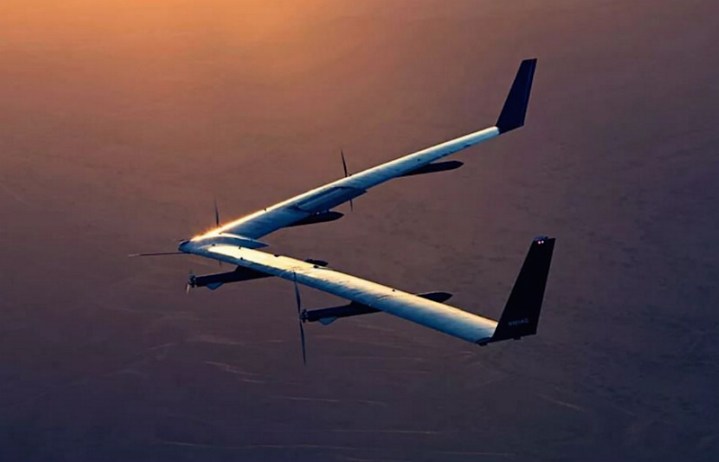
Facebook is abandoning efforts to build its own internet drone.
The decision to end work on its Aquila aircraft comes after four years of development. The aim had been to use the solar-powered flying machine to bring internet connectivity to communities in remote parts of the world that don’t have any internet infrastructure.
But in a message posted this week, Facebook said that since it started working on the Aquila drone in 2014, a number of aerospace companies had begun developing high-altitude aircraft with similar aims in mind.
“Given these developments, we’ve decided not to design or build our own aircraft any longer,” Yael Maguire, a director of engineering at the social networking company, wrote in the post.
The company says it will keep the Aquila project alive by collaborating with partners such as Airbus, and also continue working on other initiatives aimed at getting more people online.
High hopes
Facebook once had high hopes for its solar-powered drone. The plan was to deploy a fleet of them at high altitude for up to 90 days at a time while delivering tens of gigabits per second of bandwidth to communities below.
But designing the Aquila drone, which at 42 meters featured a wingspan wider than that of a Boeing 737, was clearly a huge challenge. Facebook chief Mark Zuckerberg made that abundantly clear in a blog post in the summer of 2016 in which he listed numerous hurdles that had to be overcome.
The team suffered a setback at the end of the same year when windy conditions during a test flight caused the aircraft to crash during a landing attempt, an incident that prompted engineers to review its design. It achieved a clean landing in 2017, but it had taken six months to reach that point.
Abandoning work on the drone will result in the closure of a Facebook facility in Bridgwater, England. It’s not clear how many jobs will be lost or transferred as a result.
‘Connectivity for everyone’
Maguire wrote that “connectivity for everyone, everywhere is one of the great challenges of our generation,” adding that Facebook has already connected nearly 100 million people as a result of its various efforts.
As the company now looks to aerospace firms to help it one day get an internet drone in the air, Maguire said Facebook is continuing to invest in developing next-generation, internet-related technologies “like Terragraph, working with partners on new infrastructure builds like our fiber project in Uganda, and supporting entrepreneurs in programs like Express Wi-Fi — all to help connect the 4 billion people who still do not have access to the internet.”
Facebook’s drone project had been competing to some extent with Google’s Project Loon, which uses enormous high-altitude balloons instead of pilotless aircraft to carry the necessary equipment for enabling internet connectivity.
Editors' Recommendations
- It’s drone delivery, but not as we know it
- AI drone beats pro drone racers at their own game
- Snap’s Pixy drone flies off into the sunset as it’s reportedly canceled
- It’s part drone, part plane, and headed to the skies in 2025
- Comcast tests 4Gbps speeds that could ramp up your internet


